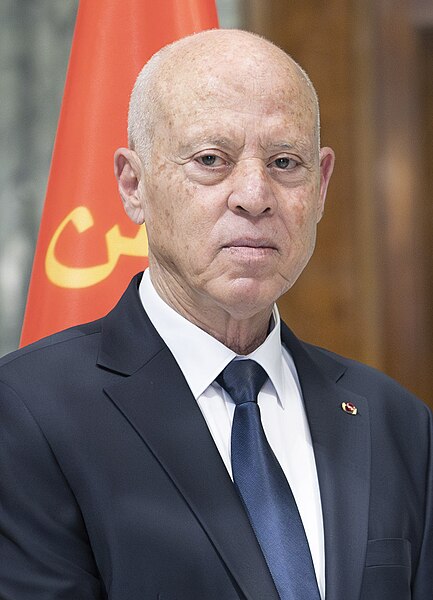The politics of Tunisia takes place within the framework of a unitary semi-presidential representative democratic republic, with a president serving as head of state, prime minister as head of government, a unicameral legislature and a court system influenced by French civil law. Between 1956 and 2011, Tunisia operated as a de facto one-party state, with politics dominated by the secular Constitutional Democratic Rally (RCD) under former presidents Habib Bourguiba and then Zine el Abidine Ben Ali. However, in 2011 a national uprising led to the ousting of Ben Ali and the dismantling of the RCD, paving the way for a multi-party democracy. October 2014 saw the first democratic parliamentary elections since the 2011 revolution, resulting in a win by the secularist Nidaa Tounes party with 85 seats in the 217-member assembly.
Tunisian Chamber of Deputies
The president of Tunisia, officially the president of the Republic of Tunisia, is the head of state since the creation of the position on 25 July 1957. In this capacity, he exercises executive power with the assistance of a government headed by the Prime Minister in a presidential system. According to Article 87 of the 2022 Constitution, he is the commander-in-chief of the Tunisian Armed Forces. Under the Constitution, the president is elected by direct universal suffrage for a term of five years, renewable once.
President of Tunisia
Image: Portrait Habib Bourguiba
Image: Zine El Abidine Ben Ali
Image: Fouad Mebazaa 2011 11 22





